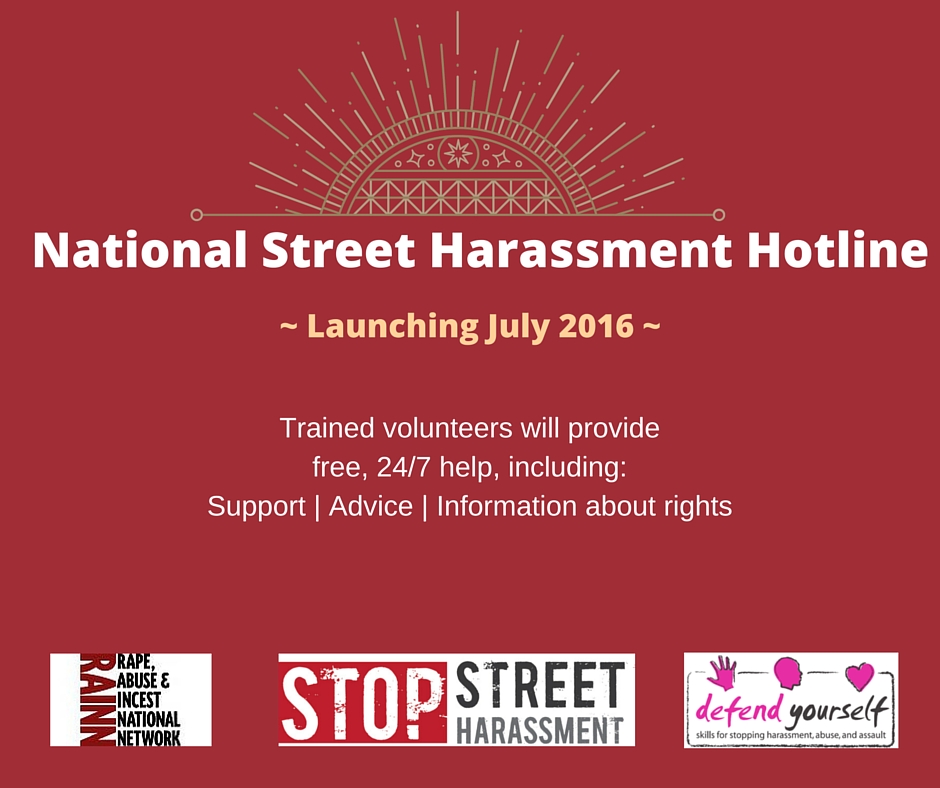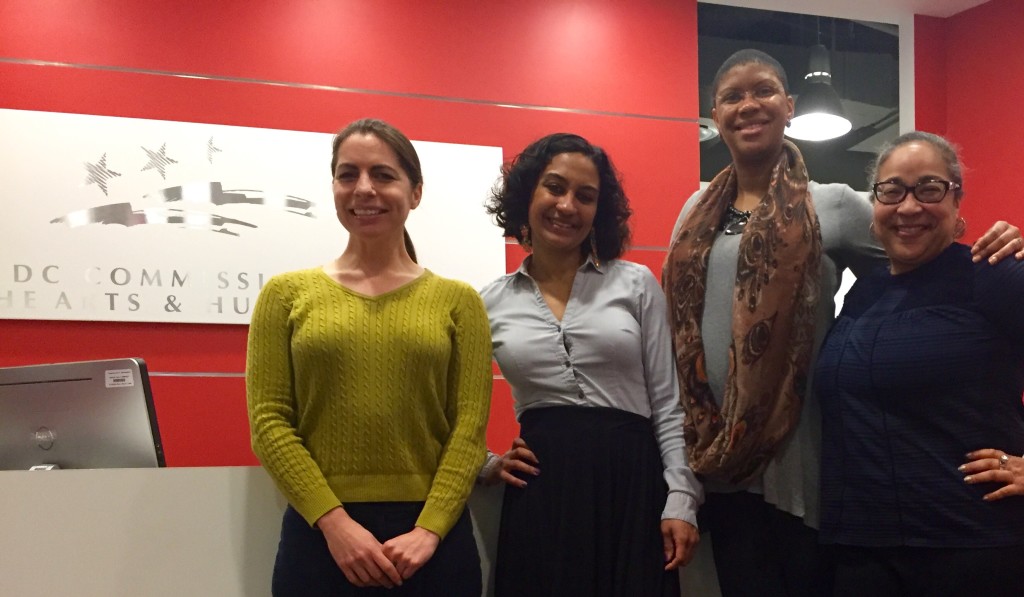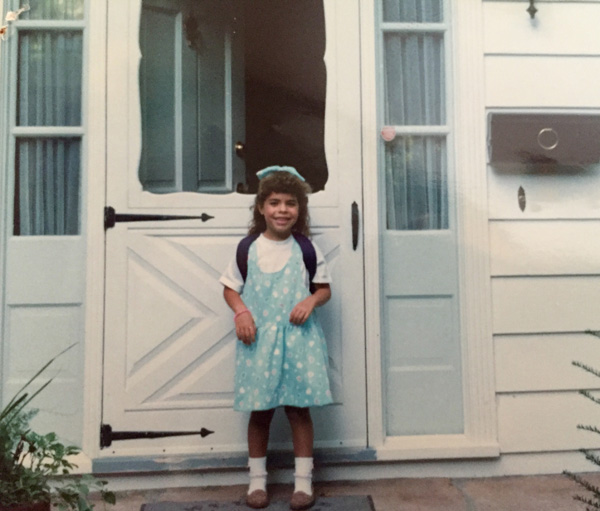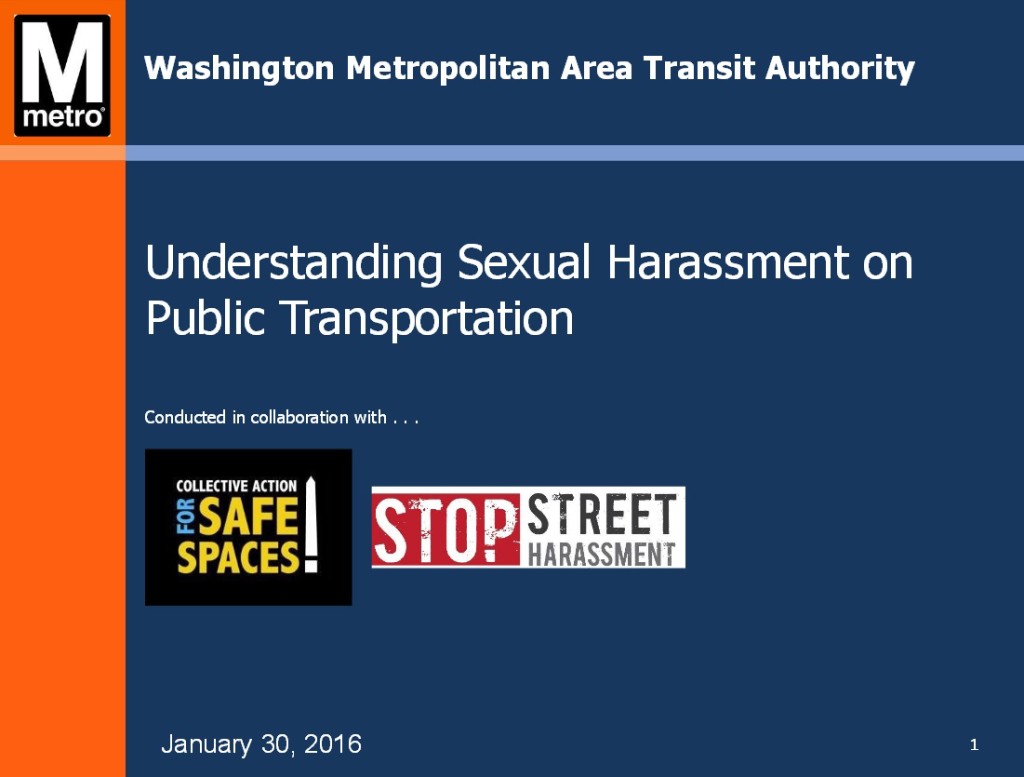 Today for International Anti-Street Harassment Week, Washington Metropolitan Area Transit Authority (WMATA), Collective Action for Safe Spaces (CASS) and Stop Street Harassment released the results of the first-ever survey on the Metro system. This is the biggest study of its kind for any transit system in the United States.
Today for International Anti-Street Harassment Week, Washington Metropolitan Area Transit Authority (WMATA), Collective Action for Safe Spaces (CASS) and Stop Street Harassment released the results of the first-ever survey on the Metro system. This is the biggest study of its kind for any transit system in the United States.
In the 1,000 person-regionally representative survey conducted in January 2016 by Shugoll Research, 21 percent of riders in the Washington, DC area had experienced some form of sexual harassment, with verbal harassment being the most common form. Women were three times more likely than men to experience sexual harassment.
In positive news, 41 percent of the riders were familiar with the latest anti-harassment campaign and those who were familiar with it were twice as likely to report their experiences of harassment. Based on the findings, WMATA, CASS and SSH are currently working on a new awareness campaign that will be released in a few weeks.
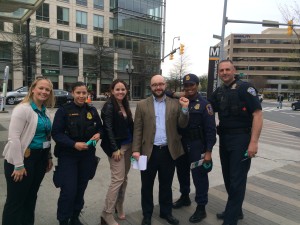 Today, during evening rush hour, we’ll be handing out materials about harassment and how to report it at five Metro stations.
Today, during evening rush hour, we’ll be handing out materials about harassment and how to report it at five Metro stations.
Metro Center
4:00 – 6:00 p.m.
Tenleytown-AU
4:00 – 6:00 p.m.
Shaw–Howard U
4:00 – 6:00 p.m.
Takoma
4:00 – 6:00 p.m.
Clarendon
4:00 – 6:00 p.m.
WMATA, CASS and SSH have collaborated for four years on an anti-harassment campaign that has included station-wide awareness posters, an online reporting form, the training of employees, and outreach days at Metro stations. All of these efforts set the tone that sexual harassment is unacceptable and is taken seriously.

